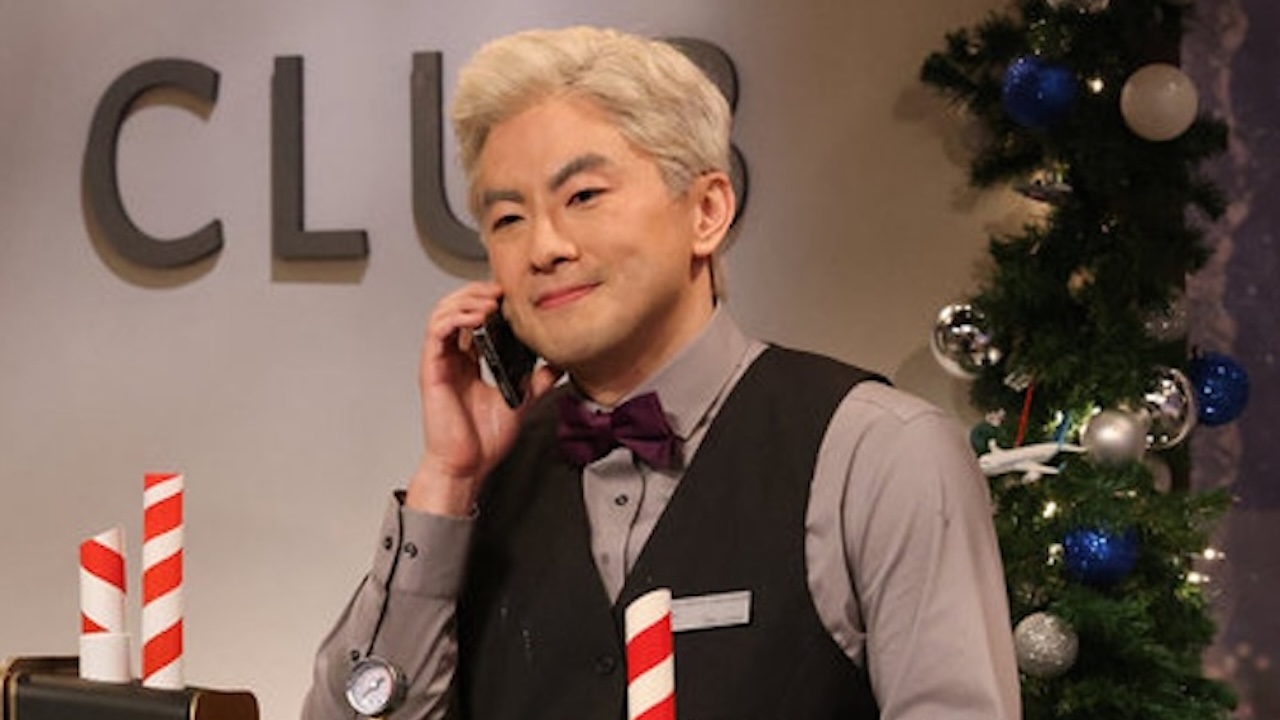The Best LA Detective Movie: The Long Goodbye

Your Daily Blend of Entertainment News
You are now subscribed
Your newsletter sign-up was successful
With Gangster Squad coming to theaters this Friday, we've decided to take a look at some of our favorite Los Angeles detective stories, and what they tell us about the city they depict. First up is Robert Altman's 1973 noir The Long Goodbye.
There are really two Los Angeleses in The Long Goodbye. There's the 70s version, where the film actually takes place, with neighbors who do naked yoga, raucous beachside parties, and a femme fatale who swans around her house in a sundress and bare feet. Then there's the 50s, where the character Philip Marlowe really comes from-- director Robert Altman and star Elliott Gould privately called the character "Rip van Marlowe," acting as if he'd gone to sleep in 1953 and woken up, utterly out of place, in 1973.
Both eras now seem irretrievably in the past, but watching The Long Goodbye the enormous differences between them become fascinating, and hilarious, with the laconic Marlowe stumbling around his own mystery and one step behind all the good-for-nothings who inhabit it. It's both an immensely satisfying classic LA detective story and a brilliant deconstruction of the entire genre, with a hero who cares more about finding his lost cat than solving the mystery and a missing suitcase full of cash that never even appears on screen. Adapting a novel by the grandaddy of all the noir writers, Raymond Chandler, Altman proves that the classic gumshoe is dead while reminding us why we loved the guy so much in the first place.
Altman depicts Los Angeles here as lovably ridiculous, a sprawling and washed-out place that somehow contains both Marlowe's dippy neighbors and Sterling Hayden's drunken genius writer, and where the guy you banter with at the grocery store at 3 a.m. turns out to be a fellow perp at the police station the next day. Marlowe lives in an improbable, Jetsons-style apartment with an open walkway dozens of feet in the air, and spends much of the film at the rambling beachfront home of the wealthy Wades, but Los Angeles never feels beautiful here, as if the entire film was shot through a layer of smog. The story isn't about the movie industry at all, but its influence is everywhere, from the ironic use of the buoyant "Hooray for Hollywood" at the film's beginning and end to the security guard who does Jimmy Stewart and Walter Brennan impressions. This isn't the Los Angeles you've seen in other movies-- this Los Angeles has been watching all those movies right along with you, and has only gotten weirder for it.
The only song heard in the entire film is the title one, "The Long Goodbye," composed by John Williams and Johnny Mercer, who have 66 Oscar nominations between them (and nine wins). The song morphs every single time you hear it, played as Muzak, as a torch song, as hippie chanting, even by a mariachi funeral band. Some say Altman simply included the many cover versions because they amused him, but it seems to speak directly to the Los Angeles spirit of reinvention, of a million ways to fake something over and over again After all, The Long Goodbye itself is its own kind of sequel, a new film starring the beloved character who starred in The Big Sleep and The Lady in the Lake-- in the current Hollywood culture of remakes and reboots, Altman's idea feels downright modern.
In one of the film's many surreal and deeply comic scenes, the gangster Augustine demands-- for reasons really clear only to him-- that Marlowe strip naked, and has all of his henchmen do the same. One of those henchmen is an uncredited Arnold Schwarzenegger, still deep into his bodybuilding career, his pecs twitching as he stands silently threatening. The future governor and movie star, given no lines but destined for fame-- what could possibly be more LA than that?
The Long Goodbye is available for streaming on Amazon and on Netflix.
Your Daily Blend of Entertainment News
Staff Writer at CinemaBlend

